Join the ECS Montreal Student Chapter for the 5th ECS Montreal Student Symposium.
Abstract submission is now open until May 27, 2015. Submissions may be emailed here.
Join the ECS Montreal Student Chapter for the 5th ECS Montreal Student Symposium.
Abstract submission is now open until May 27, 2015. Submissions may be emailed here.
Here at ECS, we strive to encourage research, discussion, critical assessment, and dissemination of scientific knowledge. What better way to do that in the digital age than with social networks?
Twitter has been one channel that scientists have adopted in the pursuit of disseminating information and advancing the science though education. Accordingly, we’ve compiled a short list of some of the best scientists to follow on Twitter.
Donald Sadoway, @dsadoway
Professor of Material Chemistry at MIT
ECS member Donald Sadoway is a battery expert and renewable energy guru. Check him out on Twitter to learn about the latest developments in battery technology and current issues in energy and climate.
#Energy#Storage still far too costly and without it, intermittent #renewables are paralyzed. Time for innovation.
— Donald R. Sadoway (@dsadoway) May 11, 2015
We recently sat down with the University of Iowa’s Johna Leddy, an established researcher in electrochemical power sources and a highly respected mentor to the students of the Leddy Lab. Listen as we talk about the energy infrastructure, Dr. Leddy’s career in academia, how to make the world a better place, and more!
Listen below and download this episode and others for free through the iTunes Store, SoundCloud, or our RSS Feed.
ECS will be offering three Short Courses at the 227th ECS Meeting this May in Chicago. Taught by industry experts, the small class size creates an excellent opportunity for personalized instruction helping both novices and experts advance their technical expertise and knowledge.
Short Course #2
Fundamentals of Electrochemistry – Basic Theory and Thermodynamic Methods
Jamie Noël, Instructor
This course covers the basic theory and application of electrochemical science. It is targeted toward people with a physical sciences or engineering background who have not been trained as electrochemists, but who want to add electrochemical methods to their repertoire of research approaches. There are many fields in which researchers originally approach their work from another discipline but then discover that it would be advantageous to understand and use some electrochemical methods to complement the work that they are doing. The course begins with a general, basic foundation of electrochemistry and uses it to develop the theory and experimental approaches to electrochemical problems of a thermodynamic nature. Read more.
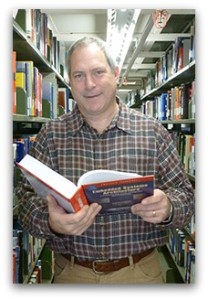 About the Instructor
About the Instructor
Dr. Jamie Noël is an established electrochemist and corrosion scientist. Throughout his career, he has worked on corrosion issues in the nuclear industry and entered into academia through his position as a research scientist and adjunct professor in the Department of Chemistry at the University of Western Ontario in London, Canada. Dr. Noël assists in training and directing students, carrying out fundamental and applied electrochemistry research projects, and teaching electrochemistry at the graduate level. He uses electrochemical and other surface analytical techniques to study the corrosion of nuclear reactor components and nuclear waste management systems material. He continues to refine techniques that combine electrochemical measurements with neutron-based materials science techniques.
Registration for the short courses has been extended through the start of the meeting.
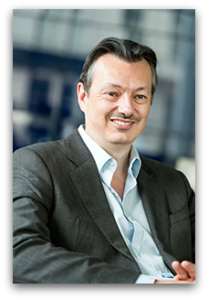 Registration for the ECS Conference on Electrochemical Energy Conversion & Storage with SOFC-XIV, convening in Glasgow, July 26-31, 2015, is now open. The plenary session will feature Nigel Brandon, Director of the Sustainable Gas Institute at Imperial College London.
Registration for the ECS Conference on Electrochemical Energy Conversion & Storage with SOFC-XIV, convening in Glasgow, July 26-31, 2015, is now open. The plenary session will feature Nigel Brandon, Director of the Sustainable Gas Institute at Imperial College London.
Prof. Nigel Brandon OBE FREng is also Director of the UK Hydrogen and Fuel Cells Hub, and Co-Director of the UK Energy Storage Hub. He held research positions with BP and Rolls-Royce before joining Imperial College as a Senior Lecturer in electrochemical engineering in 1998.
In 2000 he was a founder of the fuel cell company Ceres Power, acting as CEO to 2003, CTO to 2006 and Chief Scientist to 2009. He was appointed to the Shell Chair in Sustainable Development in Energy in 2005 and the BG Chair in Sustainable Gas in 2014.
He was the UK focal point with China in energy and climate change from 2007 to 2011, and Senior Research Fellow in Energy to the UK Research Councils from 2005 to 2014.

SYMPOSIUM F03 Membrane-Based Electrochemical Separations
FOCUSED ON High or low temperature gas separations (e.g., H2, CO2, O2); Electrodialysis; Chlorine; production; water pollution remediation; other electrochemical separations
FEATURING Meilin Liu from School of Materials Science and Engineering, Georgia Institute of Technology on Mixed Ionic and Electronic Conducting Membranes for Gas Separations and Michael Stockades of Aristotle University of Thessaloniki, Greece on Electrolyte Membranes in Heterogeneous Catalysis.
ECS will be offering three Short Courses at the 227th ECS Meeting this May in Chicago. Taught by industry experts, the small class size makes for an excellent opportunity for personalized instruction helping both novices and experts advance their technical expertise and knowledge.
Short Course #3
Scientific Writing for Scientists and Engineers
Noel Buckley, Instructor
Are you a graduate student, postdoctoral fellow or senior researcher who would like to improve your writing skills? This course is for you! Are you a professor who spends time rewriting students’ drafts of journal papers? Then, send your students to this course or attend it yourself and learn how to improve both your own and your students’ skills! Good skills in written communication are increasingly important, whether you are in an academic or an industrial environment. The course is intended for scientists and engineers with an interest in developing their skills in writing scientific documents, including journal papers, dissertations, proposals, abstracts, and reports. Read more.
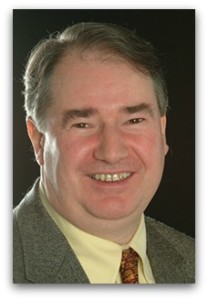 About the Instructor
About the Instructor
Dr. Noel Buckley, past President of ECS, is currently Professor of Physics and the University of Limerick, Ireland and Adjunct Professor in the Department of Chemical and Biomolecular Engineering and Cast Western Reserve University. Prior to his shift toward academica, Dr. Buckley spent 17 years at Bell Laboratories where he played a key role in the development of epitaxial crystal growth and characterization of compound semiconductor films for high performance optoelectronic devices and earlier worked on the development of rechargeable lithium batteries. He has more than 70 research publications and has made numerous presentations at international conferences. He has organized many technical symposia and has edited ~20 volumes of symposium proceedings. He has taught a graduate-level course in Scientific Writing since 2006 at the University of Limerick and via webcast at five other universities, and he has taught the present short course at previous ECS Meetings in Vancouver, Las Vegas, Montreal, Boston, and Seattle.
Registration for the short courses has been extended through the start of the meeting.
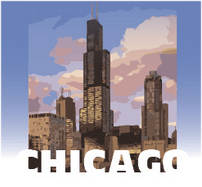 After a several year hiatus, the Chicago Section began the revitalization process in April 2015. Leading the effort in reengaging section members and activity are Alan Zdunek and Jordi Cabana from the University of Illinois at Chicago (UIC) and Eungje Lee and Arturo Gutierrez from Argonne National Laboratory (ANL). They will serve as the interim executive board for the coming year.
After a several year hiatus, the Chicago Section began the revitalization process in April 2015. Leading the effort in reengaging section members and activity are Alan Zdunek and Jordi Cabana from the University of Illinois at Chicago (UIC) and Eungje Lee and Arturo Gutierrez from Argonne National Laboratory (ANL). They will serve as the interim executive board for the coming year.
A kick-off meeting/social reception is planned during the ECS 227th Meeting in Chicago, IL on Monday, May 25th from 6:00 p.m. to 7:00 p.m., immediately following The ECS Lecture at the plenary. The reception will be jointly hosted by the Chicago Section, the Joint Center for Energy Storage Research (JCESR) and the Center for Electrochemical Energy Science (CEES) and the Chemical Sciences and Engineering Division at Argonne National Laboratory.
All ECS members are invited to participate in the event to learn more about future Chicago Section events and the program highlights from JCESR and CEES.
For more information contact, Interim Chair, Alan Zdunek, at zdunek@uic.edu.
Thousands of scientific leaders from around the world
will gather this spring in Chicago for the 227th ECS Meeting.
 Over 50 topical symposia consisting of over 2,000 technical presentations, full-day short courses, professional development workshops, career opportunities, poster sessions, a dynamic technical exhibit and the 3rd Free the Science 5K Run. The 227th ECS Meeting is expected to attract over 2,000 scientists and engineers from industry, government, and academic institutions.
Over 50 topical symposia consisting of over 2,000 technical presentations, full-day short courses, professional development workshops, career opportunities, poster sessions, a dynamic technical exhibit and the 3rd Free the Science 5K Run. The 227th ECS Meeting is expected to attract over 2,000 scientists and engineers from industry, government, and academic institutions.
The ECS Lecture
“Hydrogen from Photoelectrochemical
Water Splitting – What’s it gonna’ take?”
John A. Turner studied under Fred Anson and Heinz Gerischer. He joined the National Renewable Energy Laboratory in 1979 and began his work on photoelectrochemical water splitting for hydrogen production.
Society Award
The first ever Allen J. Bard Award will be presented along with the Gordon E. Moore Medal for Outstanding Achievement in Solid State Science and Technology.
Register for the meeting by Friday
and get a discount on your hotel room too!
PS: There is sill time to join us as an exhibitor or sponsor.
Contact dan.fatton@electrochem.org for further information.
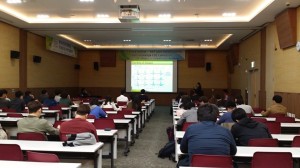
Opening of the ECS Korea Section-KIST Joint Symposium on Electrochemical CO2 Conversion in Gwangju, South Korea.
The Korea Section Symposium (Organizers: Prof. Yung-Eun Sung, Prof. Soo-Kil Kim and Dr. Byoung Koun Min) was held on April 2, 2015 at the Kimdaejung Convention Center in Gwangju, Korea.
This year, the event was held as a Joint Symposium with the Korea Institute of Science and Technology, with the title “ECS Korea Section-KIST Joint Symposium on Electrochemical CO2 Conversion.” It was composed of seven talks on electrocatalysts and systems for electrochemical reduction of CO2.